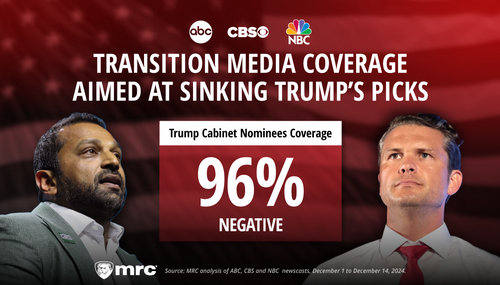The Weekend Pass section of the Washington Post’s Express free tabloid on Thursday promoted a photography exhibit glorifying Occupy Wall Street. Over a full-page photo of Occupiers climbing the statue in McPherson Square was the headline “Picturing Protest: The Occupy movement’s early days come into focus with an exhibit of photos at American University.”
The Post’s Katie Auerbach explained the exhibit features photos blown up to near-life-size proportions for their “emotional impact.” The exhibit’s curator Allison Nordstrom insisted “We picked them for a level of drama and the way the pictures created a feeling. As you move through the exhibition, our hope is that you end up feeling like you’re a part of it.”
It's bad enough that The Washington Post promoted the Occupy crowds while their protests were the hot ticket in liberal progaganda, but celebrating them as American History now that they're moved on to irrelevance in the current election year demonstrates their heartfelt sympathy.
In the middle of this emotionally impactful celebration of the Occupiers were photos from (former?) Post photographer Lucian Perkins, including the one the Post splayed on the cover of the Weekend Pass section.
In 30 years of photographing protests in Washington, Lucian Perkins had never encountered a demonstration that lasted as long as the Occupy movement, whose participants camped in D.C. parks for several months through the winter cold.
He’d never found himself tracking his subjects through cryptic, 140-character missives, either.
“Twitter turned out to be really handy for me,” says Perkins, a former Washington Post photographer who, along with others, shot the encampments over the past year for the nonprofit photography collective Facing Change: Documenting America. “I subscribed to probably eight or nine Twitter accounts of people involved in Occupy, who wrote about what they were doing daily.”
The images he and other Facing Change photographers captured of Occupiers are now part of an exhibition at American University’s Katzen Arts Center. “Occupy This!” chronicles the first months of the loosely knit nationwide (and, eventually, worldwide) movement, that intended to call attention to perceived social and economic inequality and sprang up last fall following the Occupy Wall Street protests in New York City.





